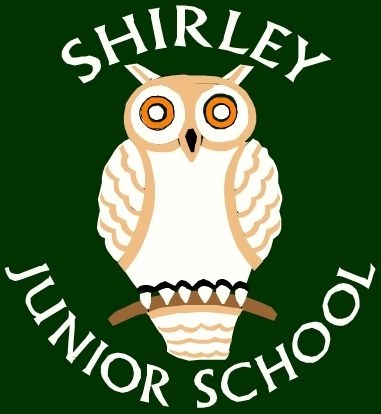English
Spelling
Children have a set of words to learn at home each half term, and they are tested in the last week of the half term. The words can be found in the children's planners.
These activities can help children practice their spellings: Spelling activity booklet
Reading
At Shirley Junior School we want our pupils to foster a love of reading, to be able to read confidently and enjoy reading. All children will be provided with an appropriate reading book for their ability by their class teacher. These books will either be Little Wandle books, Reading Planet books, or in upper school, books from our Year Group book shelves.
Each week we ask children to read at least 4 times at home, and to record their reflections on their reading in their planner at least twice a week.
See the bottom of this page for some ideas of how the reflections could look, copied from the planners with permission from the children.
Reading Reflections
Reflecting when reading is a technique which helps children to engage with texts, rather than just reading words on a page. As children become confident with their decoding (reading individual words without the need for sounding out), they begin to develop their comprehension skills (understanding the meaning of a text). By thinking deeply about a specific aspect of a book and reflect upon meaning, children increase their comprehension skills. Decoding and comprehension are needed as children develop into confident readers.
Reading reflections can take place before, after or during reading and can be written or drawn images.
Here are some ideas to inspire reading reflections:
- Meaning – Children identify words which they do not know the meaning of during reading. Using a dictionary, they discover the meaning of these unknown words and record these in their reflections.
- Prediction – Before or after reading, children think about what might happen next in a story. They record their thoughts in their reflections.
- Retrieval – After reading, children draw one of the characters or settings using information from the text.
- Inference – After or during reading, children select quotes to demonstrate a particular personality trait for a character or mood for a setting.
- Choices – After or during reading, children record words or phrases chosen by the author which they found effective as a reader.
- Structure – After reading, children comment on the layout of a text. They could discuss why an author has decided to include specific illustrations or images.
If your child really struggles to record their ideas, please speak to your child’s teacher, who will suggest alternatives, such as the child drawing a picture to show an event in the text, or a verbal discussion which you can record briefly for them. We would encourage children to write their own reflections, however, particularly in upper school, as children’s responses to something they have read can help inform an assessment of their writing, and also because it prepares them gently for their Key Stage 2 Reading test in year 6. Those children who achieve “age related standards with greater depth” in their year 6 reading outcome are most often children who have consistently read and reflected on their reading at home throughout their time with us.
Suggested Reading Lists
In the Upper school planners there are suggested reading lists for children who would like to broaden their reading.
Reading Incentives
Teachers check children’s planners in class once a week and look at the preceding 7 days of reading. We celebrate children who have taken the time to write their reflections by giving them house points, and we encourage children to engage more with their reading as much as possible.
